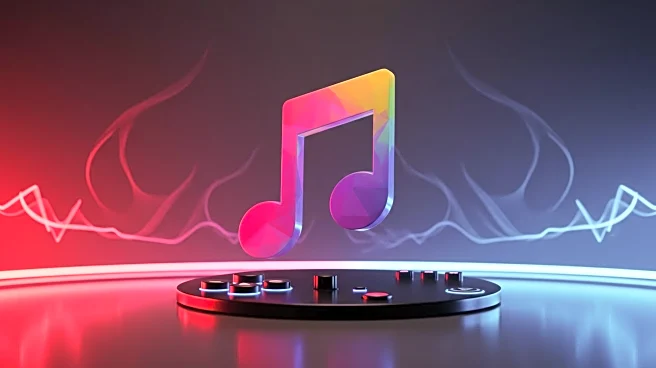What is the story about?
What's Happening?
Taylor Swift's approach to music releases has increasingly incorporated gamification, a trend that is reshaping how fans engage with her work. This method involves creating immersive experiences that encourage fans to decipher clues and engage in 'easter egg' hunts, similar to strategies used in gaming. Swift's recent album rollout exemplifies this trend, with fans eagerly analyzing cryptic signals and imagery to uncover hidden meanings. This approach is not entirely new, as artists like the Beatles and Led Zeppelin have historically engaged fans with similar tactics. However, Swift's methodical use of gamification is particularly pronounced, drawing parallels to phenomena like Harry Potter and the Marvel Comics Universe. This strategy has sparked discussions about the impact of gamification on music appreciation, with critics questioning whether it detracts from the artistic experience.
Why It's Important?
The gamification of music, as seen in Taylor Swift's releases, has significant implications for the music industry and fan engagement. By transforming music into a game-like experience, artists can foster deeper connections with fans, encouraging them to interact with the music in novel ways. This approach aligns with the preferences of younger generations who are accustomed to interactive and immersive experiences. However, it also raises concerns about the potential loss of traditional music appreciation, where art is valued for its open-ended and personal interpretations. Critics argue that gamification may lead to a focus on solving puzzles rather than experiencing music as an evolving art form. This shift could impact how music is marketed and consumed, influencing the industry's future direction.
What's Next?
As gamification continues to gain traction in the music industry, artists and stakeholders may explore new ways to integrate interactive elements into their releases. This trend could lead to more collaborations between musicians and gaming platforms, creating hybrid experiences that appeal to tech-savvy audiences. Additionally, the industry may see increased investment in technologies that enhance fan engagement, such as augmented reality and virtual reality. However, there may also be pushback from those who advocate for preserving traditional music appreciation, prompting discussions on balancing innovation with artistic integrity.
Beyond the Headlines
The gamification of music raises broader questions about the role of art in society and how it is perceived. As music becomes more intertwined with gaming elements, it challenges conventional notions of artistic value and interpretation. This shift may influence cultural perceptions of art, prompting debates on the distinction between mainstream and niche art forms. Furthermore, it highlights the evolving relationship between technology and creativity, as artists leverage digital tools to redefine fan interactions. These developments could have long-term implications for cultural production and consumption, shaping the future landscape of the arts.
















